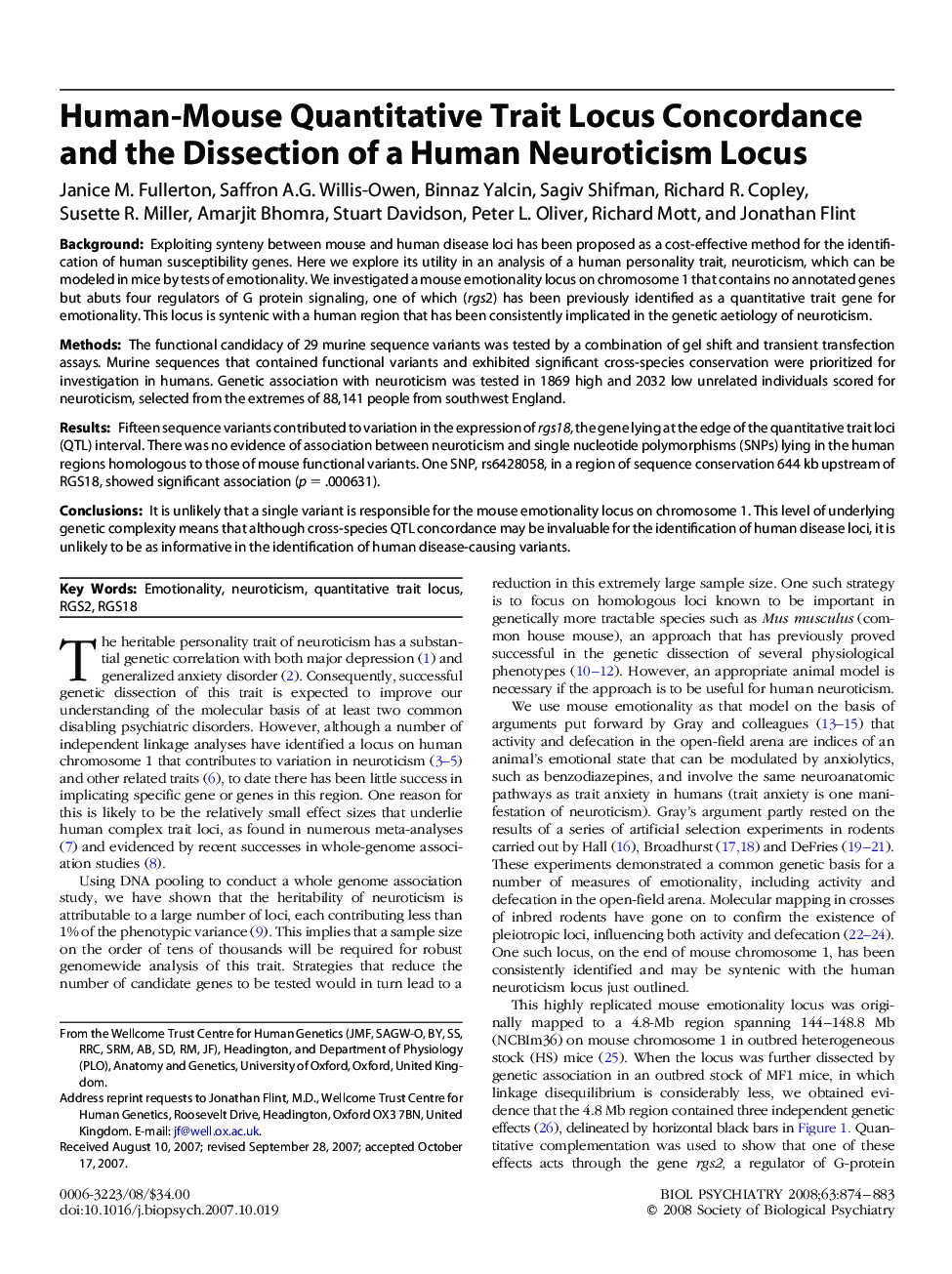| کد مقاله | کد نشریه | سال انتشار | مقاله انگلیسی | نسخه تمام متن |
|---|---|---|---|---|
| 4179802 | 1276568 | 2008 | 10 صفحه PDF | دانلود رایگان |

BackgroundExploiting synteny between mouse and human disease loci has been proposed as a cost-effective method for the identification of human susceptibility genes. Here we explore its utility in an analysis of a human personality trait, neuroticism, which can be modeled in mice by tests of emotionality. We investigated a mouse emotionality locus on chromosome 1 that contains no annotated genes but abuts four regulators of G protein signaling, one of which (rgs2) has been previously identified as a quantitative trait gene for emotionality. This locus is syntenic with a human region that has been consistently implicated in the genetic aetiology of neuroticism.MethodsThe functional candidacy of 29 murine sequence variants was tested by a combination of gel shift and transient transfection assays. Murine sequences that contained functional variants and exhibited significant cross-species conservation were prioritized for investigation in humans. Genetic association with neuroticism was tested in 1869 high and 2032 low unrelated individuals scored for neuroticism, selected from the extremes of 88,141 people from southwest England.ResultsFifteen sequence variants contributed to variation in the expression of rgs18, the gene lying at the edge of the quantitative trait loci (QTL) interval. There was no evidence of association between neuroticism and single nucleotide polymorphisms (SNPs) lying in the human regions homologous to those of mouse functional variants. One SNP, rs6428058, in a region of sequence conservation 644 kb upstream of RGS18, showed significant association (p = .000631).ConclusionsIt is unlikely that a single variant is responsible for the mouse emotionality locus on chromosome 1. This level of underlying genetic complexity means that although cross-species QTL concordance may be invaluable for the identification of human disease loci, it is unlikely to be as informative in the identification of human disease-causing variants.
Journal: Biological Psychiatry - Volume 63, Issue 9, 1 May 2008, Pages 874–883